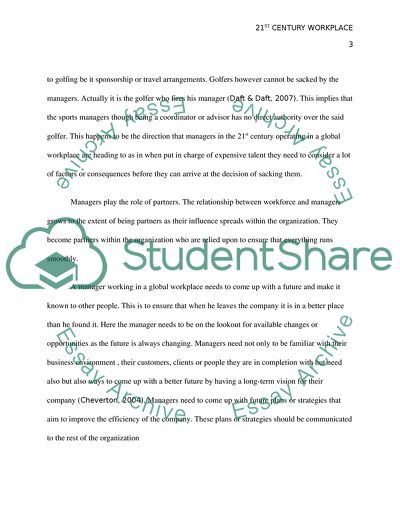Cite this document
(The 21st Century Workplace Assignment Example | Topics and Well Written Essays - 2000 words, n.d.)
The 21st Century Workplace Assignment Example | Topics and Well Written Essays - 2000 words. https://studentshare.org/human-resources/1872080-the-21st-century-workplace-individual-career-paths-and-challenges
The 21st Century Workplace Assignment Example | Topics and Well Written Essays - 2000 words. https://studentshare.org/human-resources/1872080-the-21st-century-workplace-individual-career-paths-and-challenges
(The 21st Century Workplace Assignment Example | Topics and Well Written Essays - 2000 Words)
The 21st Century Workplace Assignment Example | Topics and Well Written Essays - 2000 Words. https://studentshare.org/human-resources/1872080-the-21st-century-workplace-individual-career-paths-and-challenges.
The 21st Century Workplace Assignment Example | Topics and Well Written Essays - 2000 Words. https://studentshare.org/human-resources/1872080-the-21st-century-workplace-individual-career-paths-and-challenges.
“The 21st Century Workplace Assignment Example | Topics and Well Written Essays - 2000 Words”. https://studentshare.org/human-resources/1872080-the-21st-century-workplace-individual-career-paths-and-challenges.


